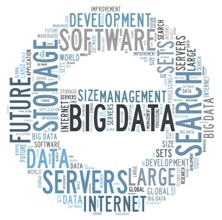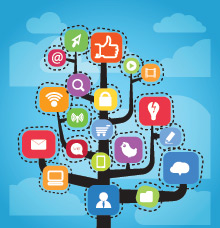Data is growing by leaps and bounds, and it is driving this new world of digital transformation. In each Nano seconds, individuals, as well as organizations, are generating a humungous amount of data in both structured and unstructured formats, leading to a piling up of at least 2.5 quintillion bytes per day. This big data is highly significant for organizations that are looking to maintain a competitive edge by analyzing these vast quantities of data and deriving insights out of it. Big data holds the potential to increase the ROI by improving the business efficiency, augmenting the customer experience and reducing the cost. However, the question is that whether enterprises are utilizing the big data that is getting generated, for improving their business. Multiple research reports on Big Data reveal that 90% of the big data in enterprises is not getting analyzed and are never used for creating useful business insights. In most of the cases is that the challenge lies with the siloed nature of data warehousing.

In many organizations even though there is a gold mine of data, it remains in siloes and is available only for a certain set of people, say data scientists, data analysts, business teams or technical teams in that organization. Even if data is accessible for these stakeholders, many organizations don’t have the right resources, processes or tools to analyse it and churn valuable business insights from it. The inaccessibility or unavailability of data to the larger audience in an organization limits the chance for embracing the larger benefits including data driven dynamic decision making. This demands the consideration of a new concept of making data available to the right person at the right time to make the right decision or ‘democratization of data’ in organizational environments.
The purpose of sharing the data owned or accessed by multiple functions in an organization is a cultural change which needs to be implemented at an organizational level, and this demands many changes in the existing processes that businesses follow currently. This can basically be called a “data – driven culture”. The organizations that are on the path of data-driven culture would need to decentralize the data systems, with respective roles and, teams holding the ownership on sharing of the data. This, in turn, leads to the democratization of data with policies, procedures and security taken care. Data is the new “oil” and the benefits it brings should be shared freely with all types of users in an understandable format with all the security and legal bindings in place. This data could be further refined or consumed for appropriate data – driven decisions.
To nurture a data- driven culture, every organization must follow the principle that data is for everyone, and it should be acquired, processed for leveraging the value, and after that, it needs to be shared in a structured and reusable format, for delivering the tangential benefits. There is no silver bullet solution for implementing data democratization in an organizational environment. It doesn’t happen in isolation with a framework built, data lake implemented, and a group of users or line of businesses making use of it. It is a process and has to be embedded and called out into the regular Big Data Development Life Cycle. It requires the right blend of people, process, and technology to arrive at the innovative, valuable business decisions derived from Big data. To bring shape to this entire lifecycle of data democratization, new practices like DataOps (data + Operations) could catalyze the ability to democratize, which mostly focuses on streamlining the goals of the business and bringing in more collaboration across teams. In a data driven organization, all these initiatives need to be monitored and mentored by the Chief Digital Officer (CDO).
Data Democratization is changing the way data is consumed, analyzed and applied in an organization. However, some of the major challenges with Data Democratization lie in sharing the data without breaking the legal and privacy policies of an individual or organization. Organizations that are ready to embark on the journey of Data Democratization needs the strong support of the people, technology, and processes guided by the right strategies and implementation plans.
Download our whitepaper ‘The Chief Data Officer’s Guide to Data Democratization’ for understanding how to implement a successful data democratization strategy in your organization. Break the siloes and unlock the true potential of your organizational data.

Shyam Viking is a technology enthusiast and a hard-core data professional. Currently exploring Data Architecture for complex applications in an enterprise landscape involving Digital Transformation, and Big Data implementations.
In the last 17 years, he has worn multiple hats of Web Programmer, Database Programmer, Database Administrator, Technology Specialist and Data Modeler.






